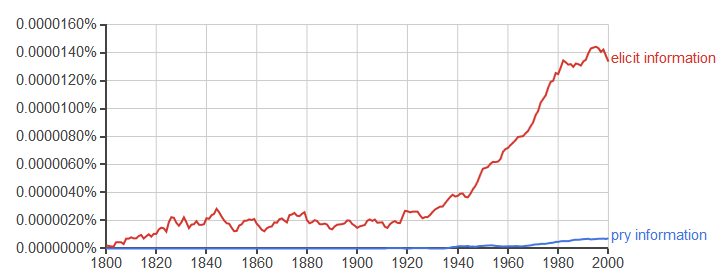Sometimes, others just inform us about things without us asking them, other times they do not do that even if we ask them. I want a verb for when others do not give us information — whether because they do not like to or they just don't give it, but we cannot directly ask them to — but we actively extract the information from them sometimes without them being aware of it.
So the word I am looking for shouldn't be only for cases where we coerce or force others to give us information, and it shouldn't be only for cases where others do not like to give us information.
Example:
I needed that information. But I couldn't ask her for it, or most probably she would not give to me even if I asked her. So, I .... the information I wanted.
It could be a phrasal verb and so not just a single word, but I couldn't devise a blank suitable for all possibilities!
Two verbs I've already had but I think are not suitable:
to give someone the third degree Source
To prize something from/out of somebody Source


